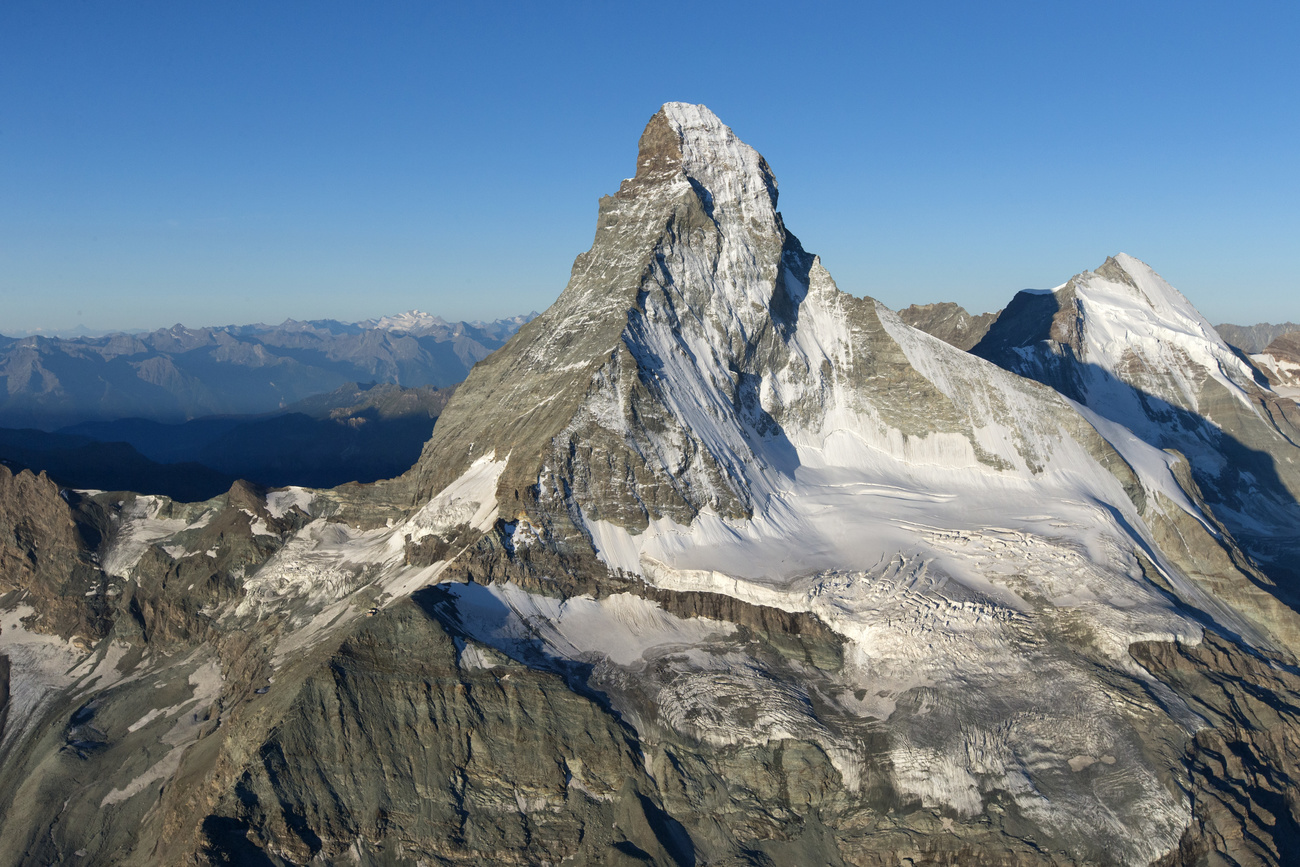
Swiss scientists develop new method for measuring permafrost

Scientists in the Swiss city of Fribourg have developed a new method to measure permafrost using electrical resistance. This could improve our ability to predict rockfalls and landslides.
Traditional methods involve drilling holes up to a hundred metres deep and measuring the ground temperature. However, this process is both complex and expensive, the Swiss National Science Foundation (SNSF) explained on Tuesday.
+Sign up to get the most important news from Switzerland directly in your inbox
“What’s more, we can only record temperatures at specific points and can’t infer anything about the volume of ice,” adds Christian Hauck from the University of Fribourg.

More
Loss of permafrost – a global cause for concern
With his team, he has helped develop a method for measuring permafrost over large areas and assessing the ice volume, which allows for predictions about future changes.
Scientists pass a direct current through two electrodes in the soil and measure its electrical resistivity. The method is detailed in the journal Environmental Research Letters.
Translated from French by DeepL/sp
This news story has been written and carefully fact-checked by an external editorial team. At SWI swissinfo.ch we select the most relevant news for an international audience and use automatic translation tools such as DeepL to translate it into English. Providing you with automatically translated news gives us the time to write more in-depth articles.
If you want to know more about how we work, have a look here, if you want to learn more about how we use technology, click here, and if you have feedback on this news story please write to english@swissinfo.ch.

In compliance with the JTI standards
More: SWI swissinfo.ch certified by the Journalism Trust Initiative





























You can find an overview of ongoing debates with our journalists here . Please join us!
If you want to start a conversation about a topic raised in this article or want to report factual errors, email us at english@swissinfo.ch.